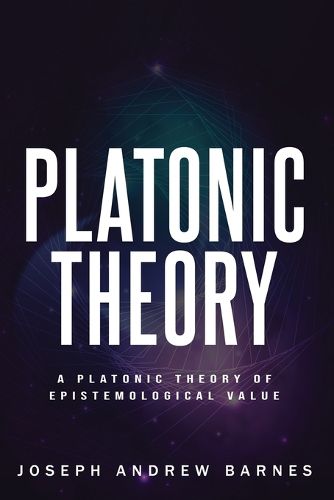Readings Newsletter
Become a Readings Member to make your shopping experience even easier.
Sign in or sign up for free!
You’re not far away from qualifying for FREE standard shipping within Australia
You’ve qualified for FREE standard shipping within Australia
The cart is loading…






Why is knowledge better than mere true belief? To make progress in answering that question, we need to distinguish two ways to understand it. It might mean: why is knowledge epistemically better than mere true belief? Or it might mean: why do we have reason to prefer epistemically better beliefs to epistemically worse beliefs? In the same way, the question "why is a Ferrari better than a lemon?" might mean "why are good cars better as cars than worse cars?" It might be, that is, a request for a general theory of car-wise goodness. Or it might instead be asking why car-wise goodness matters: "why prefer a good car to a bad one.
Why is knowledge epistemically better than true belief? According to plausible accounts, the epistemic value of a belief is a matter either of the likelihood that it is true or its degree of support by one's total evidence. These accounts, however, can't make sense of some comparative epistemic evaluations. They must treat the Churchlands' philosophically reasoned belief that there are no beliefs as epistemically just as bad as a wikipedia reader's rash belief in the same proposition, although intuitively it is epistemically better. And the plausible accounts must treat some beliefs in "commissive" versions of Moore's paradox, such as "it's raining, but I believe it's not raining," as epistemically ideal, though intuitively they are not.
$9.00 standard shipping within Australia
FREE standard shipping within Australia for orders over $100.00
Express & International shipping calculated at checkout
Why is knowledge better than mere true belief? To make progress in answering that question, we need to distinguish two ways to understand it. It might mean: why is knowledge epistemically better than mere true belief? Or it might mean: why do we have reason to prefer epistemically better beliefs to epistemically worse beliefs? In the same way, the question "why is a Ferrari better than a lemon?" might mean "why are good cars better as cars than worse cars?" It might be, that is, a request for a general theory of car-wise goodness. Or it might instead be asking why car-wise goodness matters: "why prefer a good car to a bad one.
Why is knowledge epistemically better than true belief? According to plausible accounts, the epistemic value of a belief is a matter either of the likelihood that it is true or its degree of support by one's total evidence. These accounts, however, can't make sense of some comparative epistemic evaluations. They must treat the Churchlands' philosophically reasoned belief that there are no beliefs as epistemically just as bad as a wikipedia reader's rash belief in the same proposition, although intuitively it is epistemically better. And the plausible accounts must treat some beliefs in "commissive" versions of Moore's paradox, such as "it's raining, but I believe it's not raining," as epistemically ideal, though intuitively they are not.